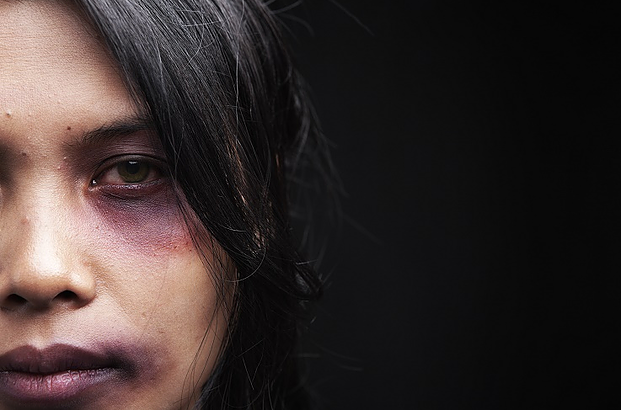By Claudia Russell
A bill is quietly in the works in New Zealand’s parliament, a bill which could help tackle one of our country’s biggest social problems. New Zealand has a shocking history with domestic violence. A third of partnered women report having experienced sexual and/or partner violence in their lifetime. On average police attend a domestic violence call-out every five and a half minutes – but this is only the tip of the iceberg. Some estimate that up to 80% of domestic violence incidents are not reported. Legislation targeted at Domestic Violence has existed in New Zealand since 1995, yet the problem persists.
The Domestic Violence Victim’s Protection bill aims to help victims become less vulnerable to the negative effects of domestic violence by offering employment-based remedies. It was introduced by Green MP Jan Logie in December 2016. The changes proposed in the Bill are:
To allow victims a statutory right to request a variation of their working arrangements.
To amend the Health and Safety at Work Act 2015 to include ‘being a victim of domestic violence’ under the definition of a ‘workplace hazard.’ This has the result of requiring employers to have a workplace policy aimed at recognising and mitigating domestic abuse.
To require employers to allow up to ten day’s paid domestic violence leave for victims.
To amend the Human Rights Act 1993 to include domestic violence as a prohibited ground of discrimination.
Why focus on the workplace?
The Bill focuses on the workplace because of the crucial relationship between financial independence and one’s ability to escape an abusive relationship. Abusers often take control of a victim’s finances, stripping them of their autonomy and ability to participate independently in society. When legislation encourages employers to recognise domestic violence, they become more equipped to alter arrangements for victims. For a victim, sometimes their only sanctuary from the abuse is the workplace. Work has the potential to satisfy social, intellectual and personal needs that are intimately tied to human dignity. Yet often the abuser wants to exercise tighter control, and will do things to try and get the victim fired. They may hide keys, block exits, or cause a scene at the workplace. Economist and Domestic Violence campaigner Suzanne Snively notes that the abuser may harass a victim at work through phone calls or showing up at the workplace. She says that properly trained employers can learn to identify and prevent this behaviour, allowing the victim to be more productive.
Can small businesses afford to give employees 10 day’s leave?
This was the major point of contention when the bill was open to parliamentary debate. At first glance it seems like the economic burden of the bill may be too much for smaller businesses to bear. However, research suggests the opposite – employers may see economic gain from implementing the policy. The cost of firing an employee, hiring and re-training replacements may exceed the cost of allowing 10 day’s leave. In fact, an estimated $153 million was lost in 2014 across the New Zealand workforce replacing victims whose employment had been terminated. It is important to keep in mind that ten days is a maximum – only a small percentage of employees would ever use their full entitlement. But the leave is important because it allows victims a time frame in which to remove themselves from an abusive environment, whether by moving homes or otherwise. They can then return to the workplace in a new state of freedom from distraction. ANZ senior HR manager Gina McJarrow states that “the cost of losing someone to sick leave, turnover or unexplained absences, lower performance and disengagement really add up,” to the extent that providing special leave is less of a burden on employers than one might expect.

2014 Pan-Canadian Survey on Domestic Violence and the Workplace.
It is predicted that in a 10-year period almost 1.3 million days of productive work time will be lost because of domestic violence. This will be due to victims being distracted at work by harassment, fears about their safety, and fears for other family members. When a victim is able to move out of the abusive environment without losing their job, this distraction is minimised in the future. The evidence all shows that domestic violence is a workplace issue. It negatively impacts the workplace, but with the right policy it can also be mitigated in the workplace. Snively’s report Productivity Gains from Workplace Protection of Victims of Domestic Abuse estimates that a total of $368 million a year is lost by employers due to effects of domestic violence.
What has been the political response?
The bill is supported by all major political parties in New Zealand. All parties acknowledge that we have a shameful history with domestic violence. Initially National’s Michael Woodhouse said that the party would not be supporting the bill due to the significant costs attached, however they have since changed their view. The bill has passed first reading and now sits with the select committee, who will hear and assess submissions. Now all we can do is wait and see whether this game-changing bill will become part of our law.
Further Reading:
https://nzfvc.org.nz/news/research-evidences-cost-domestic-violence-employers
https://www.ncwnz.org.nz/suzanne-snively-the-audacity-of-caring/
https://www.parliament.nz/en/pb/bills-and-laws/bills-proposed-laws/document/00DBHOH_BILL71935_1/domestic-violence-victims-protection-bill
http://www.ituc-csi.org/IMG/pdf/workplace_productivity_improvements_for_dv_21_may_2014.pdf
http://www.radionz.co.nz/news/national/324417/govt-won%27t-back-domestic-violence-bill
http://www.legislation.govt.nz/act/public/2015/0070/latest/whole.html#DLM5976660
Images from:
http://www.caribbean360.com/news/eu-funds-project-fight-domestic-violence-caribbean
http://documents.clc-ctc.ca/communications/Survey-Report-2014-EN.pdf




